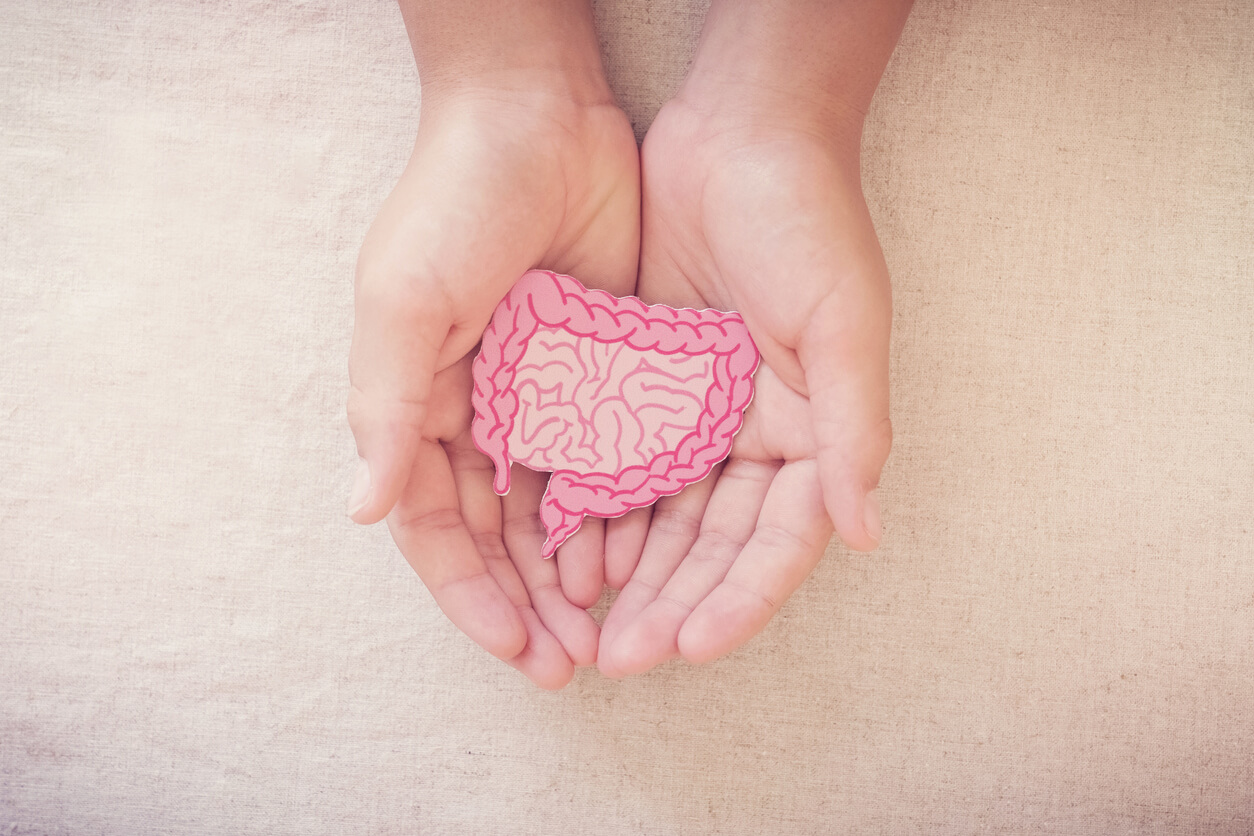Probiotic Gut Bacteria Change Behavior in Your Child | Holistic Pediatrics
Is your child acting up because their gut bacteria aren’t diverse enough? Recent research shows your child’s gut health–including “good bacteria” in the gut–affects their behavior, sleep, energy, focus, mood and more.
One of the foundational pieces of holistic pediatrics involves improving or maintaining the health of your child’s gut–including the probiotic bacteria in their microbiome. Your child’s microbiome begins adapting to their world from the moment they enter the world, and it influences health and wellbeing for the rest of their life.
What we know about the human gut microbiomes is continually evolving, but what’s apparent is that the composition of your child’s gut bacteria influences way more than just digestion.
The Gut-Brain Connection in Kids
The gut is often called the “second brain” because it’s intricately entwined with our nervous system and has  such a significant impact on mental function. Your child’s gut-based nervous system actually develops long before their actual brain is fully formed–so it makes sense that this complex system has a lot to do with regulating your child’s mental function and mood.
such a significant impact on mental function. Your child’s gut-based nervous system actually develops long before their actual brain is fully formed–so it makes sense that this complex system has a lot to do with regulating your child’s mental function and mood.
Your child’s gut-brain connection is driven largely by their microbiome, or the collection of tiny, living organisms in their gut and large intestine. These are made up of probiotic bacteria. The microbiome helps to synthesize certain vitamins and more than 30 neurotransmitters–including serotonin. It also regulates the immune system and plays a part in hormone function.
Related: Probiotics 101
“Friendly” Probiotic Bacteria Change Behavior and Influence Health
Ohio State University researchers found that gut bacteria diversity influences a toddler’s temperament. In the study, they examined the stool samples of 77 kids aged 18-27 months, and concluded that mood, curiosity, sociability, and impulsivity were linked to a more diverse bacterial species (1).
Research has only just begun to connect the dots between certain types of “friendly” bacteria in your child’s microbiome and reduced risk for gastrointestinal diseases, obesity, and other problems. Unhealthy or imbalanced gut flora has been linked to health problems such as allergies, autoimmunity, heart disease, obesity, and some cancers (2).
The foundation of your child’s gut microbiome begins in the first few hours of life, and develops rapidly during the first thousand days, and it continues to play a role in their health throughout their lifetime.
Find your perfect probiotic for infants, children, and teens>>>
Common Childhood Disorders in which gut health is key:
Hyperactivity or ADHD: Imbalances like small-intestinal bacterial overgrowth (SIBO) and candida overgrowth in childhood or as an adult are linked to chronic conditions like obesity and IBS, in addition to ADHD (3).
PANS/PANDAS: Initially triggered by an infection, treatment involves addressing microbial disturbances and reducing inflammation (4).
Autism and other spectrum disorders: A healthy microbiome manufactures hormones, neurotransmitters, and regulates the nervous system to support learning, communication, and healthy cognitive function.
Depression and anxiety: Research has identified a strong correlation with digestive issues and mood disorders such as anxiety, depression, and bipolar disorder (5).
Read: The Integrative Medicine Therapies for Anxiety & Depression
How The Gut Influences Your Child’s Mood and Behavior
The gut and the brain are part of the enteric nervous system (ENS). The gut communicates with the brain, and the brain communicates with the gut via neurons which line the digestive tract.
The gut influences mood, the immune system, and brain function using several different pathways (5).
- The neurological pathway: The gut produces crucial neurotransmitters like serotonin, GABA, melatonin, and acetylcholine, in addition to the nerves which connect the brain and gut.
- The hormone pathway: Your gut determines nutrient availability which then influences the production, secretion, and regulation of chemical messengers which communicate with the brain and endocrine system.
- Metabolic pathway: Gut bacteria produce short-chain fatty acids which are able to cross the blood-brain barrier and regulate immune cells of the brain (called microglia). This is required for proper brain development and behavior. Of important note, disruptions to SCFA metabolism have been implicated in the development of autism through the disruption of microglial communication and functio
- The immune pathway: Cytokines and other specialized inflammatory cells communicate between the gut and brain to regulate immune function. The gut is home to approximately 70% of your child’s immune cells.
Authors of the above study also note that the gut microbiome and short-chain fatty acid metabolism are implicated in the development of autism and other spectrum disorders through the alteration of microglia communication and function (5).
Dive deeper: 10 Strategies to Address ADHD Without Medication
Gut Health Relies on a Healthy Microbiome
A large part of healthy gut function and digestion relies on a balanced and diverse microbiome–or the living bacteria in your child’s gut.
They help your child absorb nutrients, digest food, regulate immune function, neurotransmitters, and energy production.
These “good bugs” have a big impact on almost every aspect of brain and body function, and can be a factor in many issues children face from mood and behavior, to frequent illness or digestive troubles.
Browse probiotics for kids, babies, and teens in the shop>>>
Your child’s microbiome is affected by:
- What they eat
- Exposure to antibiotics
- C-section or vaginal delivery
- Feeding of breastmilk as an infant
- Pesticide exposure
- Bacteria in their environment
- Outdoor play
Exposure to bacteria is an integral part of your child’s healthy early development. From the moment your child is born, their microbiome develops rapidly as it interacts with their environment and almost everything they do. But the types and amount of bacteria they’re exposed to are critical.
Related: Top 5 Fermented Foods for Gut Health
“Dysbiosis” in Your Child’s Microbiome
When the balance of “good bacteria” and opportunistic, pathogenic bacteria is tipped in favor of bad bacteria, integrative medicine often refers to this as dysbiosis.
This simply means there are too many, too few, or the wrong types of bacteria or in the wrong locations.
Studies have shown that children who have mood disorders have a greater likelihood of dysbiosis and less diverse gut bacteria overall than control groups (5).
Common problems linked to dysbiosis include symptoms like headaches, mood swings, anxiety, and skin issues like eczema, as well as specific conditions such as autism spectrum disorder and ADHD.
Learn more: Dysbiosis, Is SIBO the Missing Link to IBS?
5 Tips for Building a Healthy Gut in Children
Maintaining or improving a healthy gut in your child begins with simple, but intentional, choices in your everyday life. The good news is that with very little intervention, probiotic bacteria often flourish and are able to support a healthy body and mind in your child.
- Eat whole, real foods. Support probiotic bacteria with plenty of nutrient-dense plant foods, quality proteins, and healthy fats.
Vegetables and minimally processed grains provide prebiotic fiber, which fuels healthy bacteria. Good sources of fiber include:
- Broccoli or cauliflower

- Greens like kale, chard, and spinach
- Berries like raspberries, blueberries, or blackberries
- Avocado
- Quinoa
- Oats
- Whole grains
- Encourage unstructured outdoor playtime. Bacteria in the environment influence your child’s microbiome, and can support immune function, as well as bacteria balance throughout their lifetime. Turns out grandma’s advice to let kids play in the dirt might’ve had some basis in science!
- Feed fermented foods. Yogurt, kefir, sauerkraut, kombucha, and any naturally fermented veggie contain naturally-occuring probiotics which help colonize your child’s digestive system with healthy bacteria. Try offering 2-3 servings per week of probiotic fermented foods.
- Identify and avoid inflammatory triggers. Highly processed foods, and common allergens like wheat, soy, dairy, or nuts can contribute to an imbalance of bacteria in the gut, and tip the balance in favor of harmful bacteria.
Food intolerances contribute to intestinal inflammation which can directly impact your child’s brain. Inflammation in the gut has been linked to worsening ADHD, autism, and other spectrum disorders.
Read: 5 Tips for Parents Who Have Kids with Food Allergies
- Give a probiotic supplement. For many kids, a probiotic supplement is a great way to boost healthy gut flora–especially if they’re picky eaters or need extra probiotic support. Probiotics are generally safe for kids, but because there is limited data on dosage–especially for children under 2–it’s important to consult your functional medicine provider for the latest info.
- Get enough sleep. An often overlooked part of a healthy gut-brain connection in children is adequate rest. Your child’s nervous system depends on consistent sleep to rebuild and repair tissues, and manufacture hormones and neurotransmitters.
- Use antibiotics responsibly. Antibiotics are vital to overcoming bacterial infections, but their overuse can be an issue for your child’s developing microbiome. Working with a qualified practitioner will give you peace of mind you’re using antibiotics appropriately, and not contributing to poor gut health, or the spread of antibiotic resistant infections.
Functional and Integrative Pediatrics Puts You in Control
We’re only just beginning to understand the vast and complex connection your child’s microbiome has upon their body and mind. But holistic pediatrics acknowledges that the sophisticated ecosystem in your child’s gut can have a major influence on their mood, behavior, and mental health throughout their life.
So if you’re looking to improve your child’s mental wellbeing, often the first place to start is the gut. Adding a quality probiotic, focusing on a healthy diet with fermented foods, and plenty of fiber is crucial for a healthy gut-brain connection.
If you need more support, work with a qualified functional medicine physician to find the resources which are most effective for you and your child’s unique situation.
Resources

